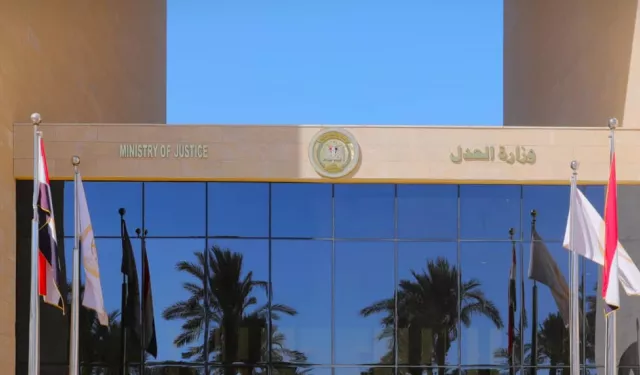Dozens of Ministry of Justice experts staged a slowdown strike across Egypt in September, slashing the national output of expert reports by half, in protest over unpaid bonuses, stalled reforms, and what they say is years of administrative abuse.
Four experts told Al Manassa, on condition of anonymity, that their workplace environment is defined by intimidation, stagnation, and systemic neglect. The experts sent memoranda of their demands, some seen by Al-Manassa, to the Minister of Justice, the Assistant Minister of Justice for Experts Affairs, and the Head of the Experts Sector. They requested to meet the Minister several times, but were unable to do so, nor did they receive any replies to their memoranda.
In response, the assistant minister instructed regional inspectors to revoke shift rotations for those failing to meet evening case quotas—moves experts viewed as retaliatory.
One expert described how their schedule previously allowed for a three-day workweek, with reports and site inspections completed within that time.
The pressure has led to serious health consequences. On Saturday, Abir Abdallah, a senior accounting expert in Banha, suffered a heart attack and was transferred to intensive care at Banha University Hospital, sources relayed to Al Manassa.
Colleagues said a resident inspector had threatened her with disciplinary action for refusing to mark absent her colleagues—who were on scheduled rotation and unaware of a new rule mandating full-week attendance for those who missed extra quotas.
Experts issued a statement, seen by Al Manassa, holding the ministry responsible: “We will not back down from defending our colleague. If necessary, we will suspend all operations,” it asserted.
One expert told Al Manassa the number of active staff has plummeted from around 3,000 to just 1,000, as many have resigned, retired, or taken unpaid leave to work abroad. No new hires have been made since 2015, sharply increasing the burden on those who remain.
Despite this attrition, experts are still expected to process five cases monthly to meet their base quota, and another five to qualify for incentives—yet full pay, including bonuses and allowances, ranges from just EGP 8,000 to 11,000.
A one-month salary bonus ordered by the Minister of Justice was effectively gutted by the Assistant Minister for Expert Affairs, who restricted eligibility. Staff on annual leave, under internal investigation, or failing to meet the extra quota were excluded. Incentive payments have remained frozen since 2012, despite soaring inflation.
They also demanded overdue promotions and an end to what they described as the Assistant Minister’s “monopoly of authority,” claiming he had stripped other officials of decision-making power—even on routine matters.
Another expert cited a three-year-old directive that subjects those who fall short of evening quotas to disciplinary investigations, even though several affected staff have already won lawsuits overturning their punishments. Referrals continue regardless.
The same expert described discriminatory practices against women seeking maternity leave, who are often told they must first complete assigned caseloads that may take months. “By law, maternity leave is mandatory and immediate upon request. But they’re using workloads to delay it for up to six months,” the expert said.
The current expert system operates under Royal Decree No. 96 of 1952, issued under King Farouk. One expert noted that the decree lacks any modern framework for salaries, promotion, or performance standards.
In the early days of the current parliamentary session, MP Abla Hawary submitted a draft law to amend the 1952 decree. It proposed allocating half of the judicial trust funds—which amount to hundreds of millions of pounds annually—to the expert sector, with the rest going to the Ministry of Finance.
Although approved by the legislative committee, the bill has remained idle for four years in the office of the Minister of State for Parliamentary Affairs. “We don’t know who’s blocking it, or why,” an expert said.
Experts who spoke to Al Manassa called for urgent passage of the stalled law, arguing that allocating part of judicial trust revenue could fund pay raises, office upgrades, and professional training.
